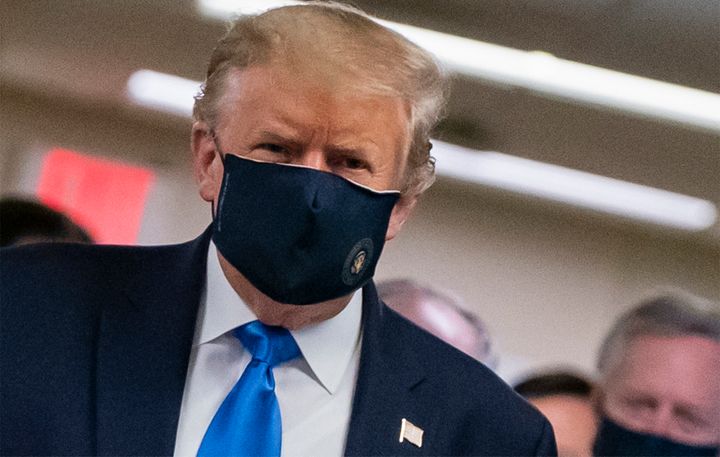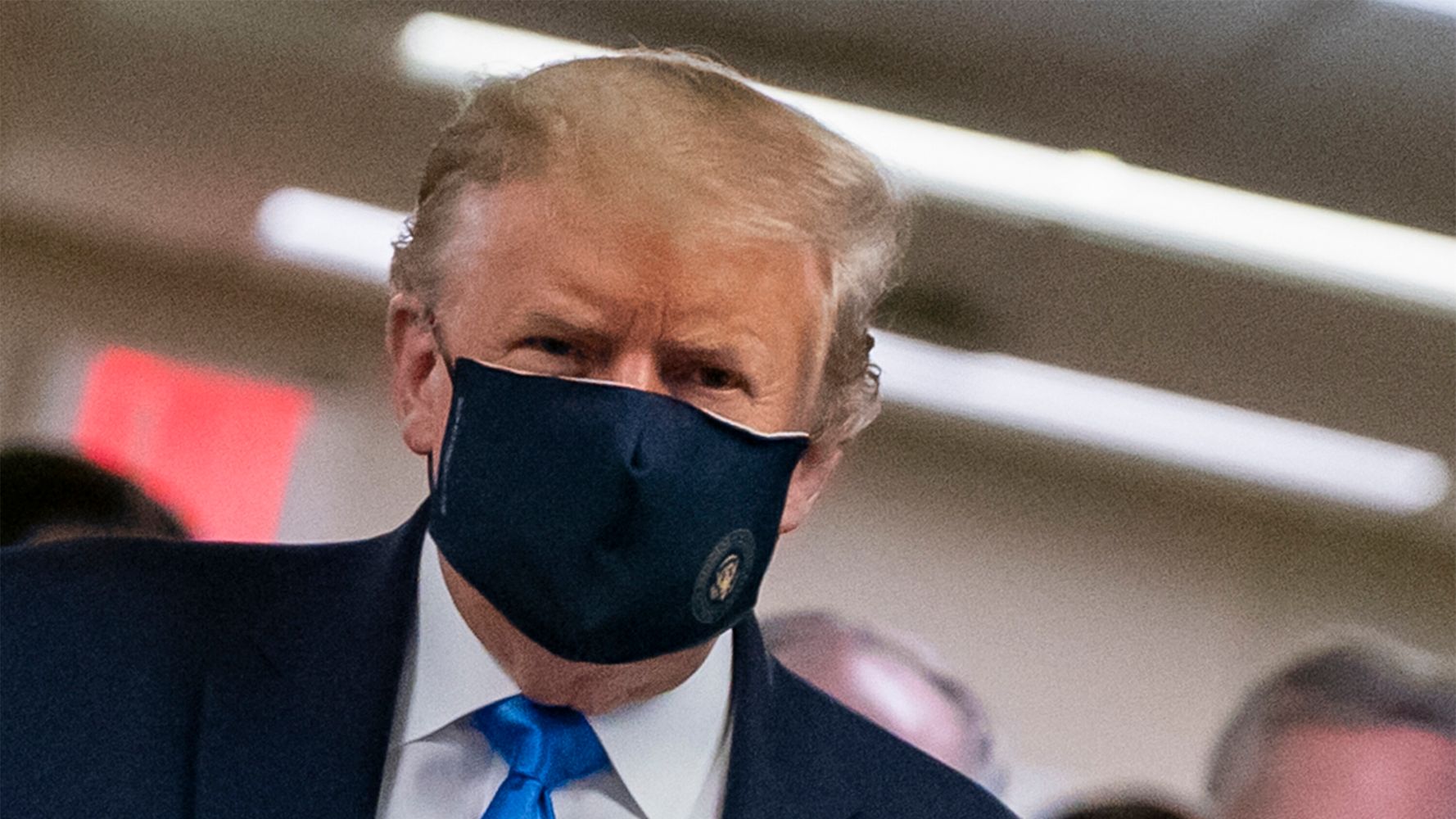[ad_1]
As many developed countries have finally gotten their arms around the COVID-19 pandemic, the United States remains in crisis ― and, in many states, is getting worse by the week.
Coronavirus cases are climbing in nearly 40 U.S. states. On Sunday, Florida broke the U.S. record for most coronavirus cases in a day with 15,300 new cases ― that’s more cases than were detected in all of Europe the same day. In Arizona, confirmed and possible COVID-19 patients were using a record number of intensive care unit beds and ventilators on Sunday. A day later, California announced it would roll back reopenings, closing all bars, movie theaters and indoor dining as cases in the state continue to surge.
The five places in the world with the most new coronavirus cases per million residents last week included four Southern U.S. states and Bahrain, a Middle Eastern country with a high population of migrant workers living in tight quarters with little access to health care.
Meanwhile, U.S. state and local leaders are fighting to gain control over the spread of the virus, up against not just a pandemic but the politicization of safety measures like masks, pressure from the federal government to reopen schools and President Donald Trump working to cast doubt on a top voice in public health, Dr. Anthony Fauci. At a time when speedy decisions, cooperation and trust in the government are crucial, the U.S. is failing.
Florida, Texas, Arizona, Alabama and other states now seeing major increases in cases were relatively late to implement key safety measures such as stay-at-home orders or mask mandates.
States that are now doing comparatively well, like New York and New Jersey, implemented lockdowns at least two weeks earlier. New York Gov. Andrew Cuomo (D) ordered a lockdown on March 20, mandating that all nonessential businesses close to curb the spread of the virus. New Jersey, Connecticut and New Hampshire all followed suit within days.
New York, once the epicenter of the coronavirus, recorded no new deaths in a 24-hour period last weekend for the first time since March. That’s a big change since one of the state’s worst peaks in April, when nearly 800 New Yorkers were dying each day from the virus.
In Florida, Gov. Ron DeSantis (R) didn’t enforce a stay-at-home order until April 3, with many of the state’s beaches remaining open and little oversight to enforce social distancing. Alabama Gov. Kay Ivey (R) implemented a shelter-in-place order on April 4, and South Carolina was the last U.S. state to enforce a lockdown order on April 7.
Many states now experiencing an increase in COVID-19 cases reopened their economies much earlier than health experts suggested, leading to a surge in avoidable coronavirus cases.
“We know how we got here. Florida, along with other states, opened up too early when they weren’t quite ready. They didn’t meet the White House’s own guidelines. And they opened up too aggressively — they had bars and restaurants and other things open when they weren’t ready to do it,” Dr. Ashish Jha, director of the Harvard Global Health Institute, said on NBC’s “Today” show on Monday.
At a time when speedy decisions, cooperation and trust in the government are crucial, the U.S. is failing.
Although it’s been clear for months that masks are effective in curbing the spread of the virus, state and local guidelines on face coverings vary widely. State leaders in New York, New Jersey and Connecticut, for example, have all encouraged residents to wear masks when outdoors and around other people. Cuomo mandated that all New Yorkers wear masks back in April, right after the Centers for Disease Control and Prevention officially recommended people wear masks in social settings.
In places like Texas, Florida and Arizona, however, mask-wearing has become a controversial and, somehow, political topic. Texas Gov. Greg Abbott (R) mandated that all Texans wear masks earlier this month as the state saw an increase in cases, but nearly 80 Texas counties opted out of the order and others are simply not enforcing it. In Florida, some Republican state lawmakers have sued their counties over mask orders.
“We have real concerns of governments overreaching during these periods of time that can hurt us in the future. It should be handled by local businesses. The government’s job is to educate people on the right thing to do, not force mandates down,” Leon County Republican Party Chairman Evan Power said in an explanation of why he’s suing over the mask mandate.
Many of the local and state leaders in areas seeing increased coronavirus cases have followed Trump’s lead. Although the Trump administration has officially recommended wearing masks for months, the president himself did not wear one in public until this past weekend. Before then, Trump attended campaign rallies and other big events without a face covering. Many of the president’s supporters took cues from him and did not wear masks at his recent campaign rally in Tulsa, Oklahoma. In May, Trump went so far as to mock his Democratic opponent Joe Biden for wearing a face mask.
The president has somewhat changed his tune on face coverings. “I think it’s a great thing to wear a mask,” he said Saturday, later adding, “They have a time and place.”

White House press secretary Kayleigh McEnany has consistently pointed to the rise in testing as a reason for a rise in COVID-19 cases. “When you lead the world in testing, that means you identify more cases,” McEnany said of the current outbreak at a Monday press conference. (Although the U.S. has ramped up its testing, it does not actually lead the world in testing.) Trump has also continued to falsely claim that the U.S. has more COVID-19 cases only because of increased testing, saying last week that the country was in a “good place.”
The president and his team have also discredited Fauci, a member of Trump’s coronavirus task force who has publicly stated that the country is not, in fact, in a good place at all. Both The Washington Post and NBC News reported on Monday that they received statements from the White House trying to undermine Fauci by pointing to several comments that the infectious disease expert made earlier in the pandemic that ended up being incorrect. Fauci’s advice (similar to that of many other public health experts) has shifted in recent months as scientists gain a better understanding of the novel virus.
On Monday, Trump retweeted a right-wing game show host’s coronavirus conspiracy theory that insinuated that the CDC and doctors, including Fauci, are lying to influence the election and get Trump out of office. Later that day, Trump told reporters that he has “a very good relationship with Dr. Fauci,” but he doesn’t “always agree with him.”
Last week, Fauci placed some of the blame for the spread of COVID-19 on a divisive culture that has politicized efforts to fight the pandemic.
“Let me say there are parts of the United States … that are doing really well, that you’ve been through something really bad and you have things under control,” Fauci told FiveThirtyEight’s “Podcast-19” recently. “But as a country, when you compare us to other countries, I don’t think you can say we’re doing great. I mean, we’re just not.”
A HuffPost Guide To Coronavirus
Calling all HuffPost superfans!
Sign up for membership to become a founding member and help shape HuffPost’s next chapter
[ad_2]
Source link

